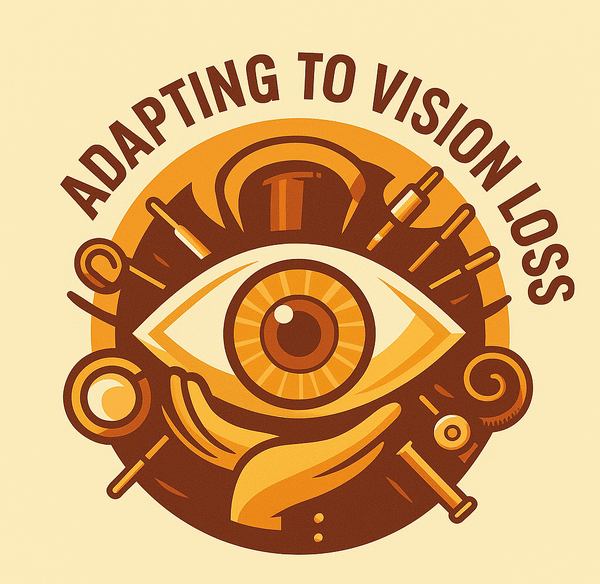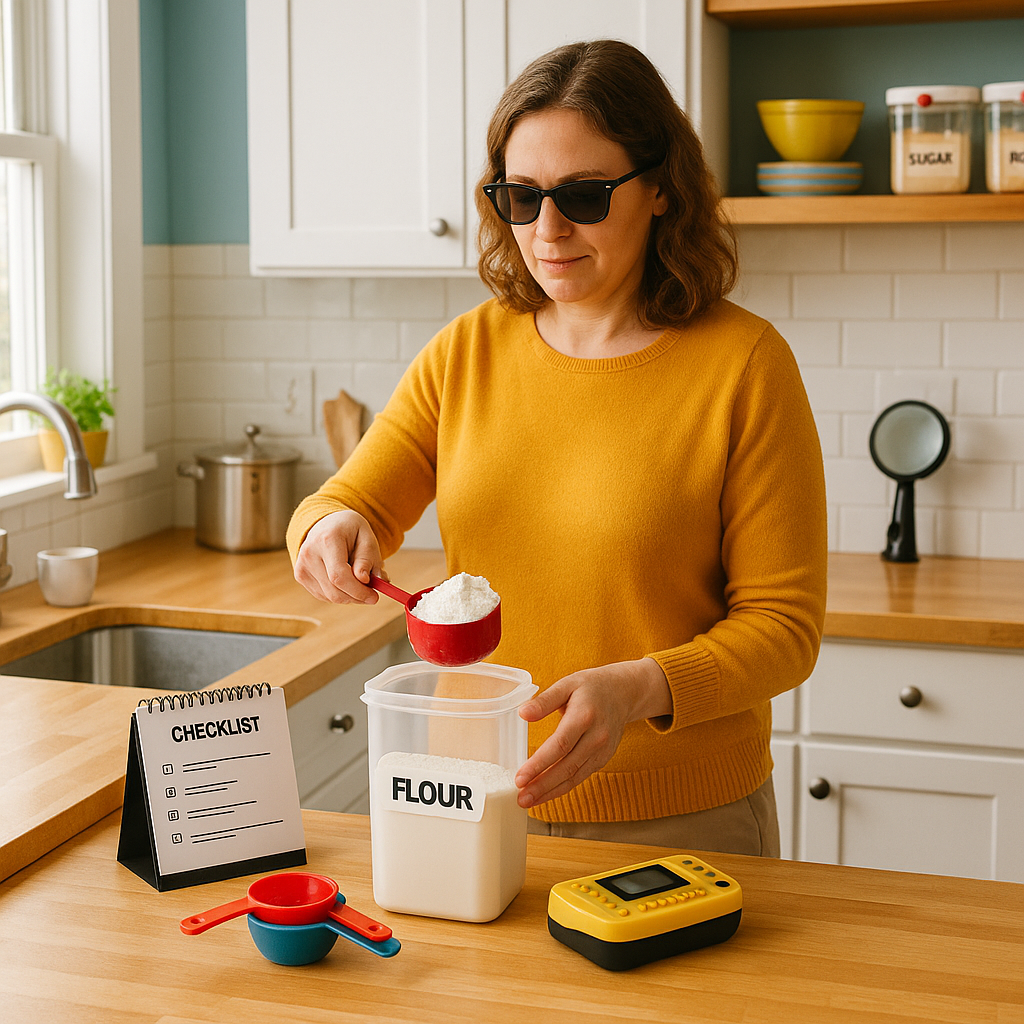Why Small Daily Wins After Vision Loss Matter More Than You Think
When I first started losing my vision, it wasn’t just about not being able to read a street sign or recognize someone across the room. What hit hardest was the slow erosion of confidence in everyday tasks—things I used to do without thinking suddenly became intimidating. That’s where learning new practical skills came in—not just to get things done, but to start rebuilding my self-trust from the ground up.
These weren’t fancy skills, and they weren’t taught in any formal setting at first. They were simple things—how to organize my kitchen so I didn’t grab the wrong spice, or how to mark the settings on my washing machine. But every time I figured out a new workaround, I felt a little more in control.
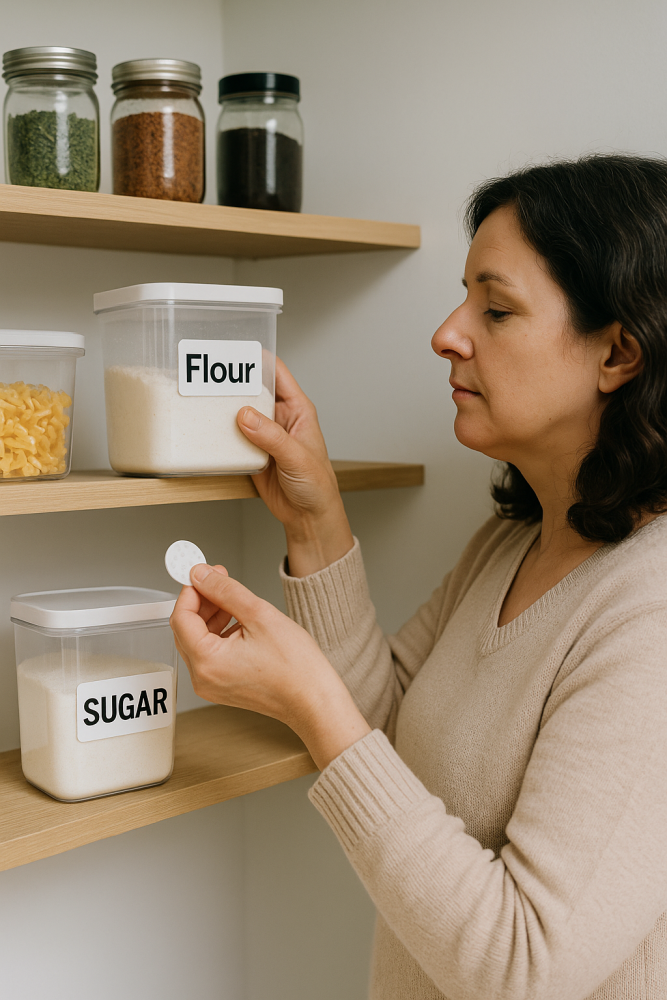 Regaining small daily skills—like labeling everyday items—was the first step in rebuilding confidence.
Regaining small daily skills—like labeling everyday items—was the first step in rebuilding confidence.
🏠 Getting Comfortable in Your Own Space Again
The first step for me was reclaiming my home. I knew I had to make it feel safe and manageable again.
Labeling everything became essential. I used bump dots, raised stickers, and later, talking label devices like the Reizen and PenFriend to mark the microwave, washer, and freezer containers. (You can read more about these in my Labeling Tools for Vision Loss article.)
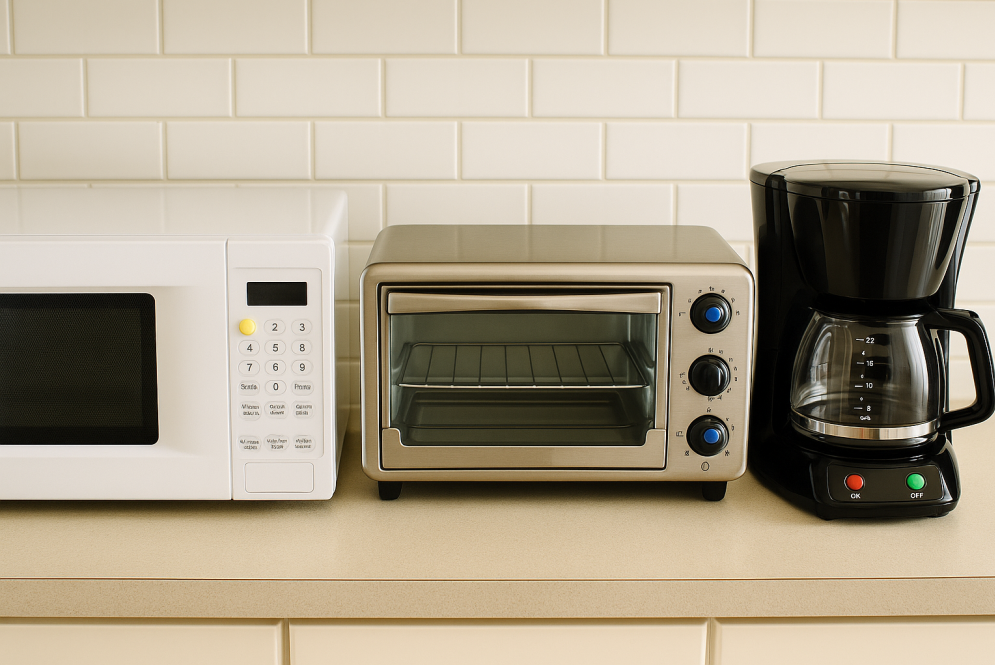 Simple adaptations like bump dots and good lighting helped make home feel manageable again.
Simple adaptations like bump dots and good lighting helped make home feel manageable again.
Lighting and contrast made a huge difference. Placing a dark mat under my white cutting board helped me see the edges better. I switched out some lamps for ones that gave me more focused light where I needed it most.
Decluttering gave me more confidence too. I didn’t realize how overwhelming visual clutter was until I started simplifying. Less “stuff” meant fewer mistakes.
Re-learning how to operate confidently in my home gave me the emotional boost I didn’t know I needed.
🍳 Kitchen Wins That Rebuild Confidence
Cooking was one of the areas that felt most daunting. I had always enjoyed being in the kitchen, but after my diagnosis, I avoided it for a while. Eventually, I started easing back in—slowly.
Here’s what helped:
Using measuring spoons with tactile markings made it possible to follow recipes again.
Pouring liquids by touch using my finger as a guide or by listening for the sound of rising liquid.
Non-slip cutting mats and cutting guides helped keep things safer.
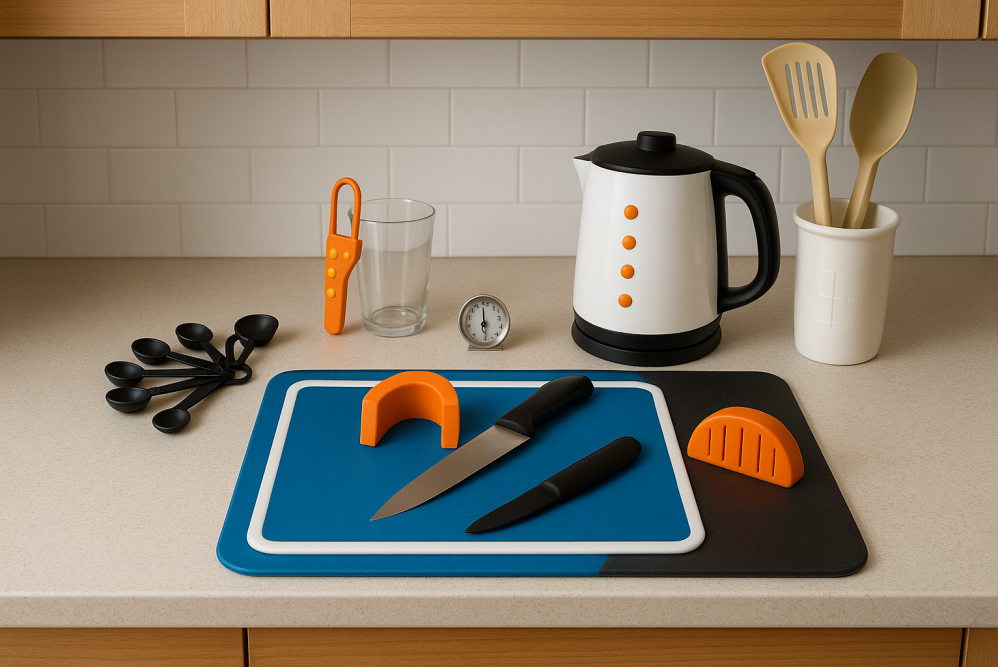 Accessible tools made it possible for me to cook confidently again—even full meals!
Accessible tools made it possible for me to cook confidently again—even full meals!
The first time I made a full meal without help, I felt like myself again. That moment—of doing something “normal” again—was a turning point.
If you’re looking for more tips like these, check out my full collection of posts under Cook with Confidence or explore practical ideas for home setup and tools in Organization Labeling
📱 Tech Skills That Build Independence
I didn’t grow up with smartphones, and I’ll be honest—at first, I resisted them. But once I started exploring the accessibility features, I realized these tools were made for people like me.
Some of the most useful skills I learned:
Activating VoiceOver on my iPhone and learning the basic gestures
Using ZoomText on my PC to make reading emails manageable again
Installing magnifier and OCR apps that read printed text aloud (More about that in my Magnifier App Guide for Low Vision)
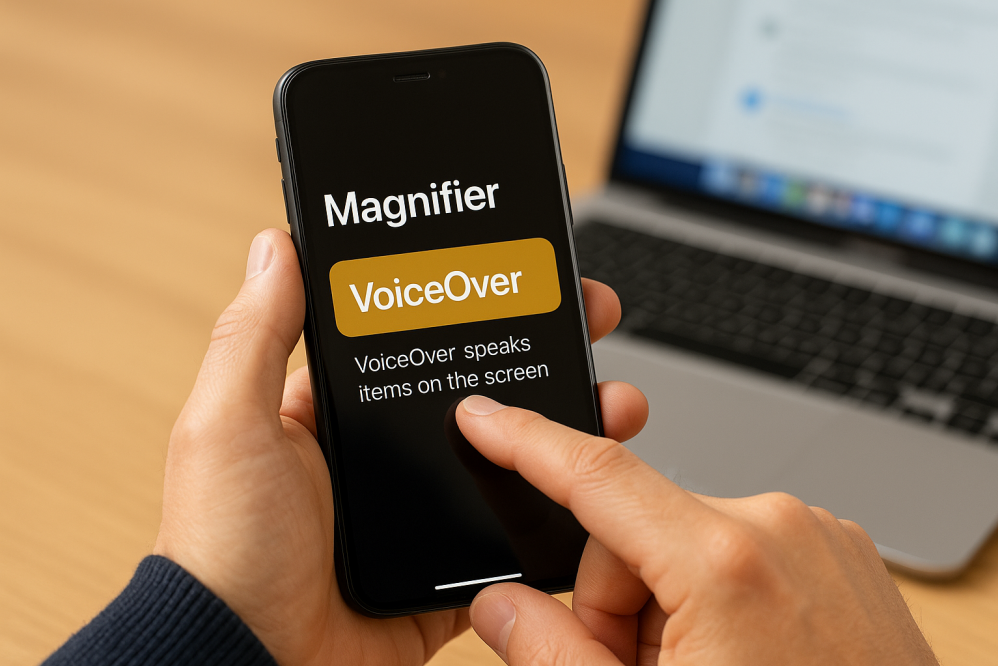 Once I embraced accessibility tech, I realized it was designed with users like me in mind.
Once I embraced accessibility tech, I realized it was designed with users like me in mind.
Learning how to use these tools wasn’t just about convenience. It reminded me that I could still adapt, learn, and stay connected to the world around me.
💼 Daily Routines, Reimagined
One of the hardest parts of vision loss is the way it upends routines. I had to rework everything—from grocery shopping to laundry.
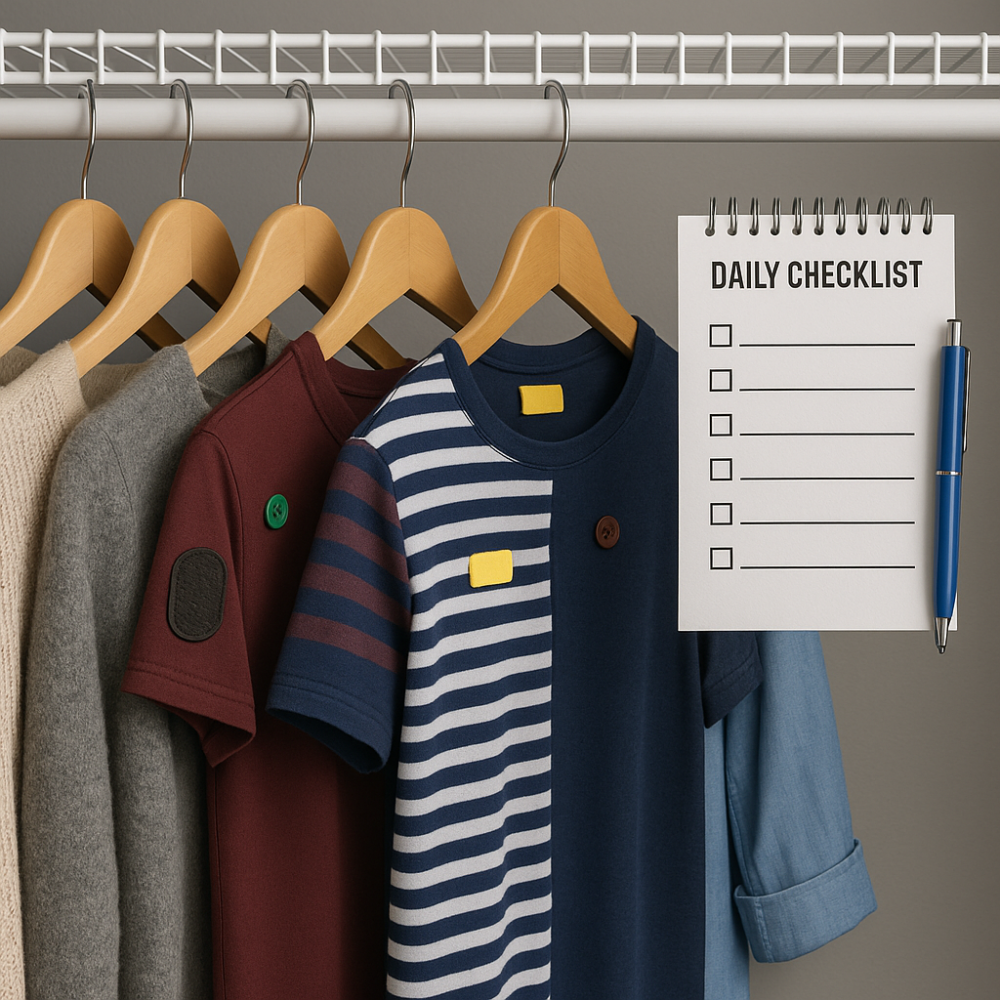 Adapting daily routines—like dressing and shopping—helped me feel organized again.
Adapting daily routines—like dressing and shopping—helped me feel organized again.
Here’s what made it easier:
- Creating checklists with large print or audio notes helped me stay organized.
- Labeling clothes by texture or colored tags made dressing easier and faster.
- Navigating unfamiliar places with app previews or polite staff requests made errands less stressful.
Each small routine I regained helped me feel more like myself again.
🗨️ Confidence Doesn’t Come All at Once
I want to be clear: this process didn’t happen overnight. There were plenty of moments when I got frustrated or wanted to give up. But every skill I picked up—every new trick or adaptation—was like laying another brick in the foundation of my confidence.
If you’re just starting this journey, don’t worry about mastering everything at once. Start small. Choose one task that feels hard and focus on making it easier. The rest will follow, piece by piece.
🪜 A Few Words Before You Go
Regaining confidence after vision loss isn’t about bouncing back. It’s about building forward—sometimes slowly, but always steadily. For me, learning practical skills wasn’t just about making life easier. It was about proving to myself that I still had what it takes.
And if I can do it, you can too.
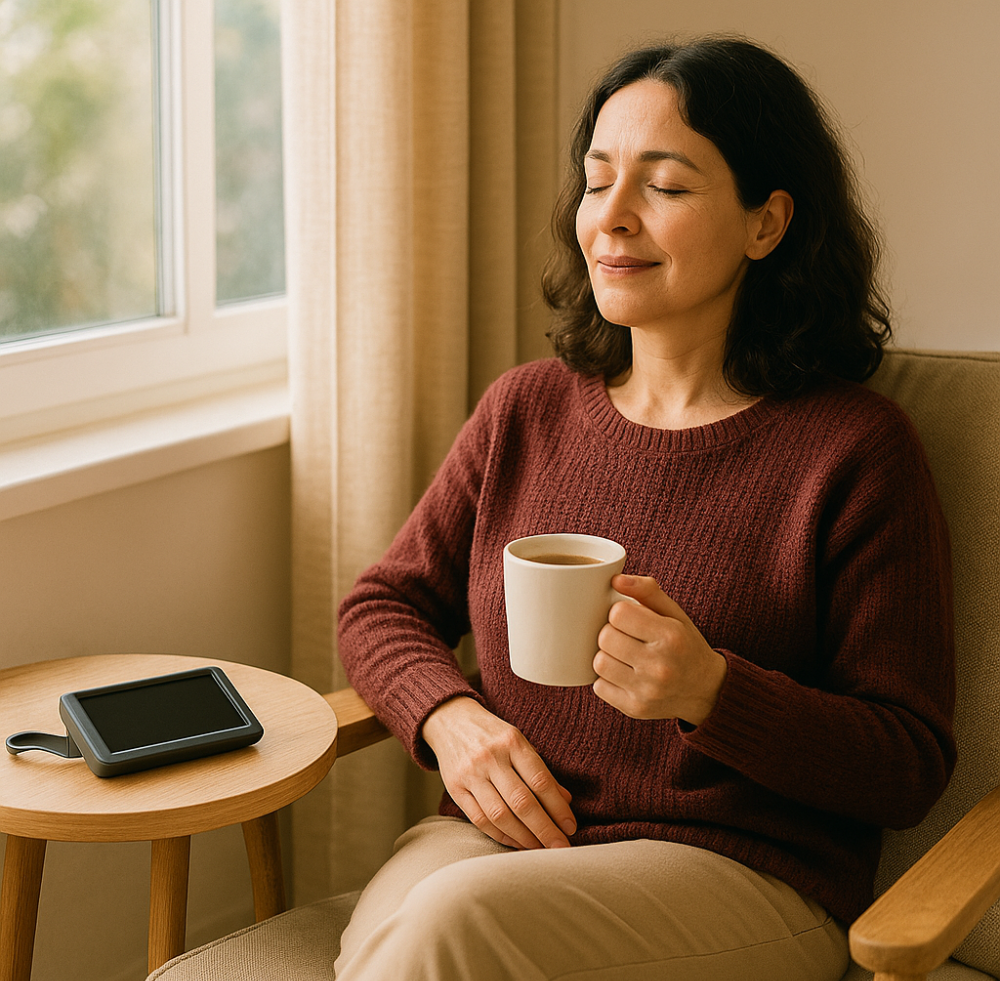 Confidence doesn’t come all at once—but it builds, one practical step at a time.
Confidence doesn’t come all at once—but it builds, one practical step at a time.
